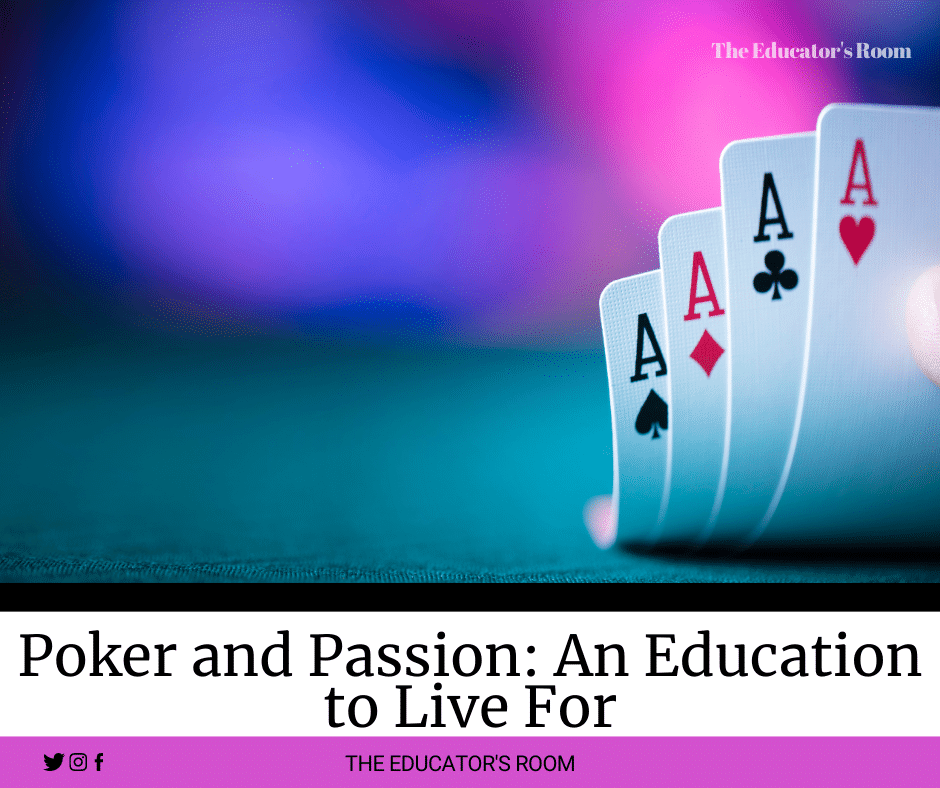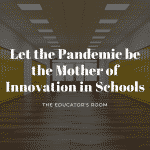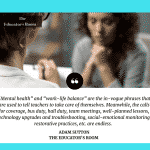“So, floating and bluffing are pretty much the same thing.” My ears perked up in surprise that my wife was eavesdropping on world-renown poker player, Phil Ivey. She continued, “You float to bluff and bluff to float. Isn’t he talking in circles?”
Although dumbfounded that my wife was listening while I watched Phil Ivey’s MasterClass, as an educator and poker fan, this was a teachable moment. One can float to set up a bluff, but doing the opposite only results in losing. I’m fairly certain she is still on shaky ground distinguishing between the two actions, but our exchange speaks to the dramatic and necessary changes we need to make concerning our system of education.
This whole exchange was born out of the podcast How To Test Out of College While You’re Still in High School. Two weeks ago I criticized this podcast’s antiquated promotion of testing as a replacement for teaching and learning. That critique still stands; however, its discussion of online learning platforms as a replacement for traditional schooling left me reeling and confused.
Online universities and websites like Sophia.org were touted for their flexibility and frugality. These online education platforms were billed as self-paced, easy, and fast ways to earn credits and graduate. It’s not a new argument, but it is an argument that trivializes education and sells a narrative that teaching and learning are a seamless, linear processes. They are not; teaching and learning are hard, obstacle-laden pursuits. And, promoting this false hope of a quick and easy educational experience is detrimental to our system of education.
I dismissed the argument of online education becoming the norm.
But, shortly after listening to the podcast, I saw an ad for MasterClass courses hosted by Daniel Negreanu and Phil Ivey. Enraged by the notion of Sopia.com supplanting the local school system, the appeal of MasterClass brought frustration and a sneaking feeling of hypocrisy.
I’ve watched something like 10 hours of MasterClass videos, hours of other poker tutorials, not to mention the articles and poker advice columns I’ve read over the last two weeks.
Despite all that engagement that came from an online resource, I still dismiss the idea that online education and Massive Open Online Courses (MOOCs) can replace traditional teaching and learning. There are too many questions and interactions that take place in a teaching and learning relationship to translate directly to online instruction.
Furthermore, while Phil Ivey is undoubtedly one of the premier poker players on the planet, he isn’t a natural-born teacher. He talks a lot about feelings in different situations and emphasizes sticking with one’s read. If I had better feel and reads on my opponents, I’d be playing more poker and not watching his videos! The notion that a professional in any field can simply transfer their knowledge and expertise via online lectures is foolhardy.
But, where this approach to education can score wins is exemplified by the hours of commitment I devoted to studying the last few weeks. I’m learning, creating questions, talking to my poker buddies, reading, and researching: I am the essence of a student right now. I love it. I’m not bored. I’m engaged, curious, driven, reflective, and eager to learn.
As my buddy who put me onto this topic originally argued, “There is something that everyone is passionate about.” Yet, our school system substitutes passion with standards and testing.
[bctt tweet=”Yet, our school system substitutes passion with standards and testing. ” username=””]
It may sound like pie in the sky stuff, but any teacher who has pleaded with teenagers to try by using every motivational tool in their arsenal without effect can relate to the notion that school doesn’t address or care about students’ passions. I hear my critics laughing at the idea of studying poker as a replacement for algebra or literature or physics. Maybe it’s not the greatest example, although the math, finances, and psychology of the game offer a mountain of academic engagement. Nevertheless, there are kids who come to school and do nothing for 6 hours every day. Nothing. Wouldn’t everyone be better off if they did something? And those high achieving kids, wouldn’t they achieve more if they were tackling problems of their own creation?
Covid-19 is forcing a lot of reflection about what educators do. One major focus of re-opening plans is seat time. How long will kids be engaged in synchronous or asynchronous activities? We make policy to force students to be present. Instead, we could choose to make policy such that kids want to be present.
Reform is coming. Any major social upheaval is destined to change our way of life. Let’s change the attitude of education from being something to survive into something that makes kids want to live.






